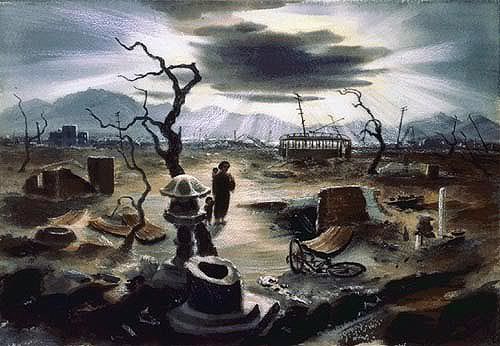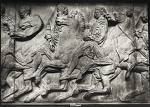I. INDUSTRY AND IMPERIALISM
Notes: Countries with industrial technology by definition has advanced military weapons and capacity, therefore could easily conquer.
A. Industrial Revolution
1. Agricultural Revolution Part II
a. Early civilizations came about because of the agricultural revolutions.
b. Potatoes, corn and other foods were introduced to Europe from the New World.
c. Urbanization is the outgrowth of increased effeciancies in farming and agriculture.
2. Technological Innovations: The Little Engine That Could
a. A series of technological advancements, in the 18th century, were….
(1) 1733-John Kay invented the Flying Shuttle
(2) 1764-John Hagreaves invented the Spinning Jenny
(3) 1793-Eli Whitney invented the Cotton Gin
(4) 1700’s-Thomas Newcaner invented the steam engine
3. But Wait There’s More
a. Telegraph….Sam Morse (1837)
b. Telephone….Alexander Graham Bell (1876)
c. Lightbulb…..Thomas Edison (1879)
d. Internal Combustion Engine….Gottlieb Daimler (1885)
e. Radio…..Marconi Gulielmo (1890’s)
f. Airplane….Orville and Wilber Wright (1903)
Note: Both Marconi and Alexander Graham Bell have associations (and Museums) in Cape Breton….where I will be soon.
4. The Factory System: Efficiency(cough) New Products(choke) Big Money(gag)
a. Thanks to a system of interchangeable parts, machines were produced uniformly so they (parts) could be replaced when they broke.
b. The assembly line makes it so workers would only have to add one part to the finished product.
c. Workers were overworked, under paid and put into harms way with out any insurance or protection.
5. Industrialization Created Hierarchy
a. At the top there were aristocrats….then middle class (managers, lawyers etc)….then working class (farmers and factory workers).
b. 1776…Adam Smith writes that economic prosperity and fairness is best achieved through private ownership.
6. Capitalism and Enlightenment Combine: Reform Catches On
a. The Factory Act of 1883 limits the hours of each work day
b. Labor Unions were being formed
c. Social Mobility-The ability to work your way up to another social class became more common
d. 1807, the slave trade is abolished
e. 1920 and 1928 America and Britain’s women gain sufferage
7. In Search of Natural Resources: Stealing is Cheaper than Dealing
a. Raw materials like cotton and rubber had been imported for factories
b. Industrialized Nations gained wealth by colonizing regions with natural resources without compensating the Natives
c. The colonists then had to buy the finished products from “the nation”: the more colonies a nation had the richer it became
8. The European Justification: Superiority is a Heavy Burden
a. Most Europeans were ethnocentric and viewed other cultures as uncivilized
b. Social Darwinists applied Darwin’s Theory of Natural Selection to Sociology. They claimed that dominant races/classes rose to the top through a process called “survival of the fittest”. This meant that because Britain was most powerful it was the most fit (superior).
c. Because they were “superior” they believed they had a “moral obligation” to teach other people to be more civilized. (Rudyard Kipling summed it up in his poem “A White Man’s Burden”.)
B. European Imperialism in India
1. The Sepay Mutiny: Too Little Too Late
a. The British East India Company relied on Sepays (Indians under British control) as soldiers
b. The Sepays rebelled in 1857 after they discovered the bullet cartridges were greased with pork and beef fat, which was against their religion.
c. Because of this rebellion, the British Parliament took control (in 1858) of India making it Crown Colony
d. 1877, Queen Victoria was Empress of India
2. Full Blown British Colonization: England on the Incus
a. Things that Britain changed….
(1) India became the model of British Imperialism
(2) Raw Materials flowed to Britain; finished materials flowed back out
(3) People had to have English attitudes and learn English language
(4) Christianity spread
(5) Railroads and canals were built
(6) Urbanization increased
b. 1885, there came the Indian National Congress to begin the path of Independence
C. European Imperialism in China
1. The Opium Wars: European Drug Pushers Force their Rights to Deal
a. 1773, Britain introduces Opium to China
b. 1838, Chinese Emperor bans Opium from China
c. 1839, Chinese seizes British Opium….starting a war from 1839-1842 (over Opium)
2. The Word is Out….China is Crumbling
a. China started to grow weak…an internal rebellion(the White Lotus rebellion) started in the early 19th century
b. 1860’s, Korea found China weak and declared it’s self independent from China
c. Then China lost control of Vietnam
d. Ten years later China was defeated in the Sino-Japanese War
e. 1895 the treaty of Shimanoseki forced China to hand over Taiwan and grant trading rights with Japan
3. The Boxer rebellion: Knocked out in the First Round
a. 20th century...Nnationalism among Chinese peasants was festering
b. Groups that organized in response of the government’s defeat were…
(1) Anti Manchu
(2) Anti European
(3) Anti Christian
(4) The Society of the Righteous and Harmonious fists, Car Boxers
c. The Boxer’s zeal was to drive Europeans and Japanese out of China
D. Japanese Imperialism
1. The Meiji Restoration: Shogun out, Emperor in, Westerners out
a. The Meiji Restoration had an era of Japanese Westernization
b. 1870’s, Japan was building railways and steamships
c. 1876, Samurai were abolished
d. 1890’s, Japan’s industrial and military power was on a roll…enough to reduce the European and US influence
E. European Imperialism in Africa
1. The Slave Trade Finally Ends
a. 1807-1820, many European Nations abolished slave trade
b. Slavery itself is not abolished until a few decades later
c. No new slaves could come in but those who were already slaves would continue to be slaves
2. South Africa: Gold Rings, A Diamond Necklace and a British Crown
a. South Africa becomes valuable (to Europe) for shipping and military reasons
b. Dutch came first…settled Cape Town
c. 1795, Brits seized Cape Town
d. Transvaal….discovery of diamonds and gold….causes a series of wars over resources
e. South Africa became a British Colony
f. 1910, the Colony got it’s own Constitution, still under Britain but did gain a lot of self-rule
3. Egypt- A New Waterway Makes A Splash
a. Ottomans ruled Egypt from 1517-1882, though in 19th century it’s rule was very weak
b. Napolean tried to take over Egypt (Mohammed Ali defeated the French and Ottomans and gained control of Egypt in 1805
c. His successor, AbbasI, worked with the French to construct the Suez Canal
d. The canal helped the British most…In 1882, seized the canal and claimed Egypt as a British Protectorate
4. The Berlin Conference: Carving Up the Continent
a. 1884, Otto von Bismarck had a conference with the European powers in Berlin to resolve various European claims to the African Congo
b. After three decades, almost all of Africa was colonized by Britain, France, Spain, Germany, Italy, Portugal and Belgium.
c. Only Ethiopia and Liberia remained free of Europe by 1914
d. Europeans built railroads, dams, roads but treated the Natives poorly
II. Political Developments in the Americas and Europe
A. Two Revolutions: America and French
1. Independence can’t happen without a little Paine
a. Thomas Paine (American) urged the colonists to support the movement against the British. He wrote the pamplet called “Common Sense” where he discusses his ideas and ridicules the Monoarchy.
b. France: Sent ships, soldiers, weapons and money to aid in the American cause
2. The French Revolution
a. The estates General: Generally a mess (French society was divided to three estates)
(1) Clergy
(2) Nobles
(3) Everyone else
b. The king had to summons one person from every estate to talk and they hoped to gain favors from the king…they wanted to meet together but Parliament said “no”.
c. 1789, formed the National Assembly...peasants grow restless and attack the Bastille (a prison) and anarchy spread.
3. A New Constitution Causes Consternation
a. 1791, National Assembly creates new constitution similar to United States
b. Austrians and Prussians invade France (to restore Monarchy because King’s wife, Marie Antoinette, was sister of king of Austria).
c. The French made a new constitution called the convention, which made France a Republic
4. The Reign of Terror: the Hard Fought Constitution Gets Tossed Aside
a. The convertion was worried that foreign threats would lead to their demise…they throw out the constitution and created the Committee of Public Safety.
5. Napoleon: Big Things Come in Little Packages
a. Napoleon Bonaparte: General by the age of twenty-four
b. 1779, he over threw the Directory by popular vote. He declared himself first consul
c. He initiates many reforms in agriculture, infrastructure and education
d. 1804, Napoleonic Laws declared the equality of French citizens
e. His troops conquer Austria, Prussia, Spain, Portugal and Italy
6. The congress of Vienna: Pencils and Erasers at Work
a. 1815, Congress decreed a balance of power should be maintained among the powers of Europe (to avoid another rise like Napoleon).
B. Lots of Independence Moments: Latin America
1. Haiti: Slave Revolt Sends France a Jolt
a. The first successful Latin American revolt was in Haiti
b. Colonists had plantations and slaves were treated terribly
2. South America: Visions of Grandeur
a. 1808, Napoleon appoints his brother to the Spanish throne (Spanish people appointed their own leader, Simon Bolivar).
b. Argentina: conflict between French governor and supporters of Spanish Crown. Jose de Martin took command of Argentinean armies
c. 1820’s, Huge chunk of South America declares it’s independence
3. Brazil-Power to the People
a. Brazil was a Portuguese colony and the King fled there in exile…when he returned to Portugal, he left his son Pedro to run the country
b. Pedro crowned himself Emperor
4. Mexico- A Tale of Two Priests
a. 1810, Migal Hidalgo (a priest) led a revolt against Spanish rule
b. The Spanish execute Hildago but Jose Meralos picked up where he left off and led the revolutionaries to further success against the Loyalists
5. The Effects of Independence Movements: More Independence than Freedoms
a. In some Latin American countries, independence was not spread among the citizens
b. Peasants still worked on Plantations and a middle class of merchants and small farmers didn’t emerge….the enlightenment ideas didn’t spread either.
c. The Catholic Church still remained powerful in Latin America
d. Latin economies were still dependent on Europe
C. Two Unifications: Italy and germany
1. The Unification of Italy: Italians give foreign occupiers the boot
a. Mid 19th century Italy was a lot of small kingdoms
b. 1849, King of Sardinia (Victor Emmanuel II) named Count Camillo Cavarhis as Prime Minister and Nationalism took off (removing Austrian influence from Italy)
c. Italians gain control of Venetia
2. The Uniform of Germany: All about Otto
a. 1861, King of Prussia appointed Otto von Bismarck prime minister
b. Bismarck defeated Autria and secured other German principalities
c. France declares war on Russia (after being provoked by Bismarck) starting Franco-Prussian War
D. Other Political Developments
1. Russia: life with Czars
a. 19th century, Russia gave absolute power to the Romanov’s
b. 1860’s, Alexander II issued Emancipation Edict, which abolished serfdom
c. Alexander III created policy called Russianification (all Russian people had to learn Russian and convert to Russian Orthodoxy
d. 1894-1917, Nicholas II reigned and Russians wanted a revolution
2. The Ottoman Empire: Are They Still Calling it an Empire?
a. 16th c. Ottoman Empire begins it’s decline
b. 17th – 18th c. they are fighting Russia
c. Greece, Egypt, Arabia launched independence Movements
3. U.S. Foreign Policy: This Hemisphere is Our Hemisphere
a. President Monroe declared that Western Hemisphere was off limits to European aggression
b. The Roosevelt Corollary said U.S. could intervene in financial disputes between European powers (to maintain peace)
III. Technology and Intellectual developments
A. Rail lines, steam engines, new entertainment, literature and ideas; Economic, political and social changes
IV. Women
Women still had few freedoms but women (in general)were not effected by the enlightenment ideas of freedom, equality and liberty.
Feminist writers begin to emerge in this century
Wednesday, July 9, 2008
Subscribe to:
Post Comments (Atom)








No comments:
Post a Comment